 Stargate to Hell: Why Larry Ellison is Lying About Surveillance
Stargate to Hell: Why Larry Ellison is Lying About Surveillance
The people of the Earth speak a variety of languages, and concepts and knowledge of our progenitors continue to be communicated through generations, hundreds of generations, of their posterity, which end up being stated in languages that diverge from their original language. Because of this, similar ideas and concepts are expressed in different words. It is difficult to differentiate between the same idea expressed in different words from different ideas expressed in different words.
I admire you because you seek to pierce that veil of ignorance that separates our peoples. The idea of Valhalla is that valiant warriors that fall in battle are feted in the afterlife. There are differences in details, but I will offer that same idea exists in Christianity, and in all religious faiths. There is more consonance in our principles than divergence, because people are more similar than they are different around the world.
The word translated as heaven in the original greek refers to that universe beyond the Earth which cosmology and astronomy discuss. That doesn't make them different things. It just is different discussions about what is referred to in different languages, from different perspectives. I suggest that admiration for the valiant is a universal attribute in all cultures, religions, and societies, and Valhalla and heaven can well be considered to be words referring to the same thing in different languages by different cultures that have maintained our common understanding in divergent ways over many, many generations.
Genius @valued-customer's wonderful English sentences always cause American elementary school students to suffer!😂
I don't believe in Valhalla because I'm a Christian! I remember Vikings as originally pagans, very cruel and ferocious barbarians!
They buried people alive in the ground.😨
I guessed that the reason @valued-customer mentioned Valhalla was because Christianity in the world today, including in the US, is not good and pure!
But there were also false prophets among the people, just as there will be false teachers among you. They will secretly introduce destructive heresies, even denying the sovereign Lord who bought them--bringing swift destruction on themselves.
Many will follow their shameful ways and will bring the way of truth into disrepute.
In their greed these teachers will exploit you with stories they have made up. Their condemnation has long been hanging over them, and their destruction has not been sleeping.
For if God did not spare angels when they sinned, but sent them to hell, putting them into gloomy dungeons to be held for judgment;
if he did not spare the ancient world when he brought the flood on its ungodly people, but protected Noah, a preacher of righteousness, and seven others;
if he condemned the cities of Sodom and Gomorrah by burning them to ashes, and made them an example of what is going to happen to the ungodly;
and if he rescued Lot, a righteous man, who was distressed by the filthy lives of lawless men
(for that righteous man, living among them day after day, was tormented in his righteous soul by the lawless deeds he saw and heard)--
if this is so, then the Lord knows how to rescue godly men from trials and to hold the unrighteous for the day of judgment, while continuing their punishment.
This is especially true of those who follow the corrupt desire of the sinful nature and despise authority. Bold and arrogant, these men are not afraid to slander celestial beings;
yet even angels, although they are stronger and more powerful, do not bring slanderous accusations against such beings in the presence of the Lord.
But these men blaspheme in matters they do not understand. They are like brute beasts, creatures of instinct, born only to be caught and destroyed, and like beasts they too will perish.
They will be paid back with harm for the harm they have done. Their idea of pleasure is to carouse in broad daylight. They are blots and blemishes, reveling in their pleasures while they feast with you.
With eyes full of adultery, they never stop sinning; they seduce the unstable; they are experts in greed--an accursed brood!
They have left the straight way and wandered off to follow the way of Balaam son of Beor, who loved the wages of wickedness.
The corruption and collapse of Christianity and the Church brings about God's judgment!
Even when humans fall and perish, God always purifies the world and a new era of salvation opens!
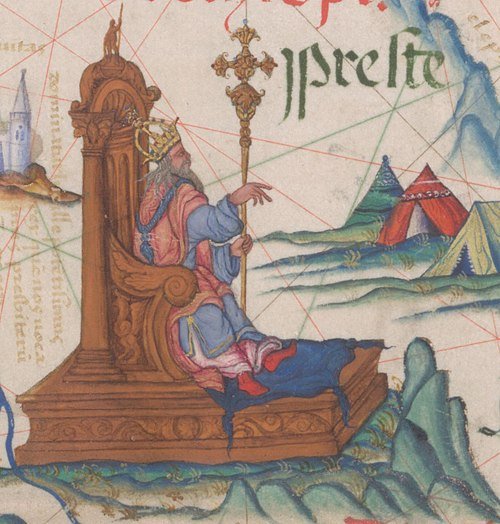 "Preste" as the Emperor of Ethiopia, enthroned on a map of East Africa. From an atlas by the Portuguese cartographer Diogo Homem for Queen Mary, c. 1555–1559. (British Library)
"Preste" as the Emperor of Ethiopia, enthroned on a map of East Africa. From an atlas by the Portuguese cartographer Diogo Homem for Queen Mary, c. 1555–1559. (British Library)
Prester John (Latin: Presbyter Ioannes) was a mythical Christian patriarch, presbyter, and king. Stories popular in Europe in the 12th to the 17th centuries told of a Nestorian patriarch and king who was said to rule over a Christian nation lost amid the pagans and Muslims in the Orient.[1]: 28 The accounts were often embellished with various tropes of medieval popular fantasy, depicting Prester John as a descendant of the Three Magi, ruling a kingdom full of riches, marvels, and strange creatures.
At first, Prester John was imagined to reside in India. Tales of the Nestorian Christians' evangelistic success there and of Thomas the Apostle's subcontinental travels as documented in works like the Acts of Thomas probably provided the first seeds of the legend. After the coming of the Mongols to the Western world, accounts placed the king in Central Asia, and eventually Portuguese explorers came to believe that the term was a reference to Ethiopia, by which time it had been an isolated Christian "exclave" distant from any other Christian-ruled territory.
The legend of Prester John was one of the biggest causes that led to the opening of the Age of Exploration in Europe.
 16th-century portrait of Marco Polo
16th-century portrait of Marco Polo
Marco Polo (/ˈmɑːrkoʊ ˈpoʊloʊ/ ⓘ; Venetian: [ˈmaɾko ˈpolo]; Italian: [ˈmarko ˈpɔːlo] ⓘ; c. 1254 – 8 January 1324)[1] was a Venetian merchant, explorer and writer who travelled through Asia along the Silk Road between 1271 and 1295.[2][3] His travels are recorded in The Travels of Marco Polo (also known as Book of the Marvels of the World and Il Milione, c. 1300), a book that described the then-mysterious culture and inner workings of the Eastern world, including the wealth and great size of the Mongol Empire and China under the Yuan dynasty, giving Europeans their first comprehensive look into China, Persia, India, Japan, and other Asian societies.[4]
In search of Prester John's kingdom, Marco Polo went to China. He told Europeans that there were Cathay and Chipanggu, the golden countries in East Asia, and Europeans came to East Asia in search of the golden countries.
This is a video of Marco Polo made by East Asians!😃
Marco Polo was evaluated by modern East Asians as having a very genius memory.
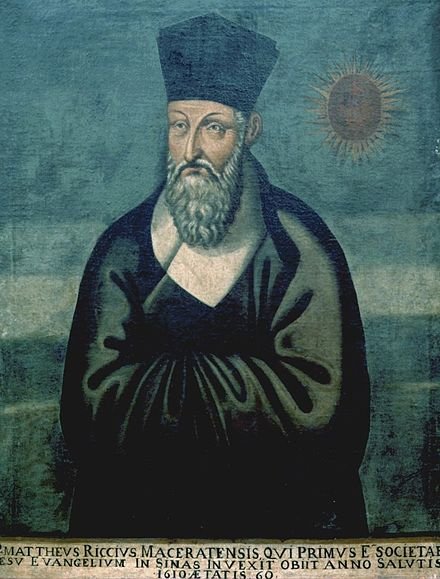 1610 Chinese portrait of Ricci
1610 Chinese portrait of Ricci
Matteo Ricci SJ (Italian: [matˈtɛːo ˈrittʃi]; Latin: Matthaeus Riccius; 6 October 1552 – 11 May 1610) was an Italian Jesuit priest and one of the founding figures of the Jesuit China missions. He created the Kunyu Wanguo Quantu, a 1602 map of the world written in Chinese characters. In 2022, the Apostolic See declared its recognition of Ricci's heroic virtues, thereby bestowing upon him the honorific of Venerable.[1]
Ricci arrived at the Portuguese settlement of Macau in 1582 where he began his missionary work in China. He mastered the Chinese language and writing system. He became the first European to enter the Forbidden City of Beijing in 1601 when invited by the Wanli Emperor, who sought his services in matters such as court astronomy and calendrical science. He emphasized parallels between Catholicism and Confucianism but opposed Buddhism. He converted several prominent Chinese officials to Catholicism. He also worked with several Chinese elites, such as Xu Guangqi, in translating Euclid's Elements into Chinese as well as the Confucian classics into Latin for the first time in history.
Matteo Ricci was an Italian who visited East Asia 300 years after Marco Polo!
Matteo Ricci was considered a genius by scholars in China and Korea!
Matteo Ricci's outstanding scholarship, theology, science and mathematics amazed East Asians.
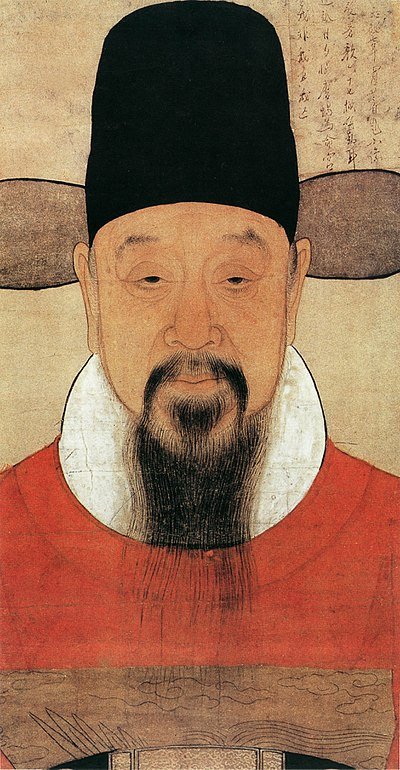 Xu Guangqi
徐光啓
Xu Guangqi
徐光啓
Xu Guangqi or Hsü Kuang-ch'i (April 24, 1562 – November 8, 1633), also known by his baptismal name Paul or Paul Siu, was a Chinese agronomist, astronomer, mathematician, politician, and writer during the late Ming dynasty.[6] Xu was appointed by the Chinese Emperor in 1629 to be the leader of the Shixian calendar reform, which he embarked on with the assistance of Jesuits.[7] Xu was a colleague and collaborator of the Italian Jesuits Matteo Ricci and Sabatino de Ursis and assisted their translation of several classic Western texts into Chinese, including part of Euclid's Elements. He was also the author of the Nong Zheng Quan Shu, a treatise on agriculture.
Matteo Ricci converted Xu Guangqi, a prominent Chinese scholar and official, to Catholicism.
With Xu Guangqi becoming a Catholic, Catholic groups began to emerge spontaneously within China.
Matteo Ricci's scholarship, ideas, theology, science, and mathematics were transmitted to Korea, where the first Catholic group emerged.
Yi Byeok (李檗, 1754-1785) is recorded in history as the first Catholic believer in Korean history.
Yi Byeok (李檗, 1754-1785) was a scholar of Korea’s later Joseon period who, in 1784, played a leading role in the foundation of Korea's first Catholic community. It is reported in one source that his original name was Yi Taek-jo.[1]
 A biker performing a dirt jump that, according to some interpretations, is the result of free will
A biker performing a dirt jump that, according to some interpretations, is the result of free will
Free will is the capacity or ability to choose between different possible courses of action.[1]
Free will is closely linked to the concepts of moral responsibility, praise, culpability, and other judgements which apply only to actions that are freely chosen. It is also connected with the concepts of advice, persuasion, deliberation, and prohibition. Traditionally, only actions that are freely willed are seen as deserving credit or blame. Whether free will exists, what it is and the implications of whether it exists or not constitute some of the longest running debates of philosophy. Some conceive of free will as the ability to act beyond the limits of external influences or wishes.
East Asians were particularly shocked and fascinated by the Christian doctrine of predestination and free will!
 Juan de la Abadía el Viejo: Saint Michael Weighing Souls
Juan de la Abadía el Viejo: Saint Michael Weighing Souls
Predestination, in theology, is the doctrine that all events have been willed by God, usually with reference to the eventual fate of the individual soul.[1] Explanations of predestination often seek to address the paradox of free will, whereby God's omniscience seems incompatible with human free will. In this usage, predestination can be regarded as a form of religious determinism; and usually predeterminism, also known as theological determinism.

The female overlord of Japan and her subjects
For East Asians who had lived as slaves to great monarchs for 3,000 years, the Christian doctrine of predestination and free will was a great shock and surprise!😲
So, East Asian scholars studied predestination and free will in Christianity academically, and many converted to Catholicism.
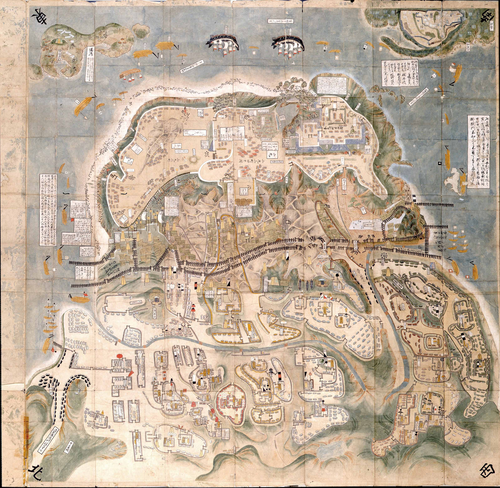 Shimabara battle map and Hara Castle
Shimabara battle map and Hara Castle
The Shimabara Rebellion (島原の乱, Shimabara no ran), also known as the Shimabara-Amakusa Rebellion (島原・天草の乱, Shimabara-Amakusa no ran) or Shimabara-Amakusa Ikki (島原・天草一揆), was an uprising that occurred in the Shimabara Domain of the Tokugawa shogunate in Japan from 17 December 1637 to 15 April 1638.
When Japanese Christians launched the Shimabara Rebellion (島原の乱, Shimabara no ran), Japan's overlords began a massive persecution of Christianity that lasted for centuries.
https://www.youtube.com/watch?app=desktop&v=Lk1QKgKyAyc&t=6m18s
So, indigenous Christianity in Japan disappeared.
 Top: The Battle of Anqing (1861), 1884 painting
Bottom: Battle on the Yangtze between Qing and Taiping naval forces
Top: The Battle of Anqing (1861), 1884 painting
Bottom: Battle on the Yangtze between Qing and Taiping naval forces
The Taiping Rebellion, also known as the Taiping Civil War or the Taiping Revolution, was a civil war in China between the Manchu-led Qing dynasty and the Hakka-led Taiping Heavenly Kingdom. The conflict lasted 14 years, from its outbreak in 1850 until the fall of Taiping-controlled Nanjing—which they had renamed Tianjing "heavenly capital"—in 1864. However, the last rebel forces were not defeated until August 1871. Estimates of the conflict's death toll range between 20 and 30 million people, representing 5–10% of China's population at that time.[4] While the Qing ultimately defeated the rebellion, the victory came at a great cost to the state's economic and political viability.
The Taiping Rebellion was a religious revolutionary movement that mixed traditional Chinese religion with Christianity.
From my respected elder brother Steve's perspective, The Taiping Rebellion can be called Christian heretics.
1. Have Americans Forgot the Korean War?
 Syngman Rhee
이승만
Syngman Rhee
이승만
Syngman Rhee (Korean: 이승만; Hanja: 李承晚, pronounced [iː.sɯŋ.man];[b] 26 March 1875 – 19 July 1965) was a South Korean politician who served as the first president of South Korea from 1948 to 1960. Rhee is also known by his art name Unam (우남; 雩南).[1] Rhee was also the first and last president of the Provisional Government of the Republic of Korea from 1919 to his impeachment in 1925 and from 1947 to 1948. As president of South Korea, Rhee's government was characterised by authoritarianism, limited economic development, and in the late 1950s growing political instability and public opposition.
Syngman Rhee promised that if the United States supported Korea's independence, he would make Korea a Christian nation like the United States!
He argued that if the United States dominated the Korean Peninsula, it could dominate all of East Asia!
There are many viewpoints that claim that the legend that Prester John's kingdom was in East Asia is now fiction!
However, there were many attempts in East Asia to establish Prester John's kingdom.
I tell you the truth: Among those born of women there has not risen anyone greater than John the Baptist; yet he who is least in the kingdom of heaven is greater than he.
From the days of John the Baptist until now, the kingdom of heaven has been forcefully advancing, and forceful men lay hold of it.
For all the Prophets and the Law prophesied until John.
And if you are willing to accept it, he is the Elijah who was to come.
He who has ears, let him hear.
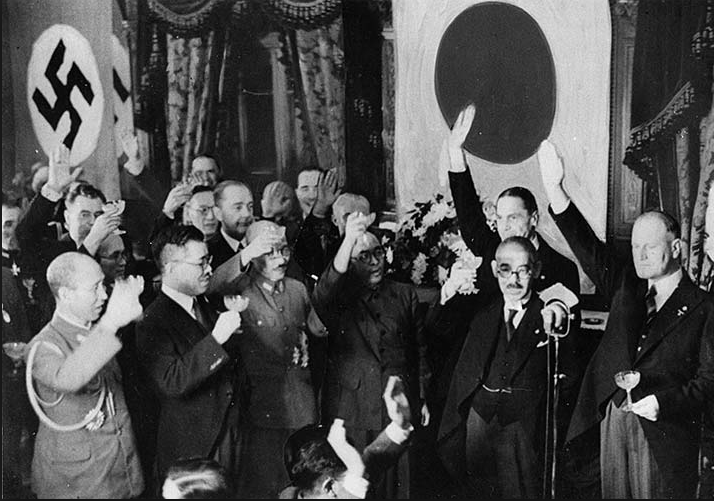
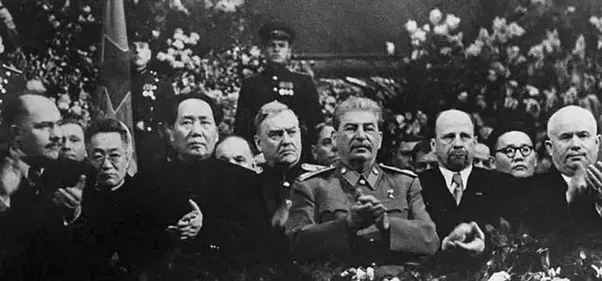

The East Asian overlords beloved by @valued-customer still harbor ambitions to establish Prester John's kingdom to this day.
To do so, they believe they must defeat and conquer their most dangerous enemy: @valued-customer !
The war to take possession of heaven will continue forever until the second coming of Jesus!
Disclaimer: I would like to first state that the above article is entirely my personal research and therefore may contain errors and misunderstandings! I wish my respected seniors would understand the awkward, rude, and barbaric English sentences of American elementary school students!😂
I do not support torture. Many people, including many Christian people (or at least people that claimed to be Christian) have committed torture. Since 9/11/2001 many Christians have advocated torturing innocent people, such as children, to try to catch terrorists. I strongly disagree that torture is ever superable, for any reason, and particularly that torture of children can ever be lawful in any way.
I am convinced that torture is a capital crime, and a just people will prosecute torture as a crime against humanity. I am also convinced that there is no just people on Earth today, and that every government of men is a corrupt criminal enterprise in progress.
I suggest that the falling and perishing of people is God purifying the world, because in a world ruled by evil people their perishing is required to leave only good people in a purified world.
Your writing is better than that of most native speakers of English.
Thanks!
Appreciate you for your generous compliments!
By the way, I wonder what you think about free will and predestination in Christianity!Dear my respected senior, @valued-customer !
I certainly have free will, and if God is omniscient all is predestined.